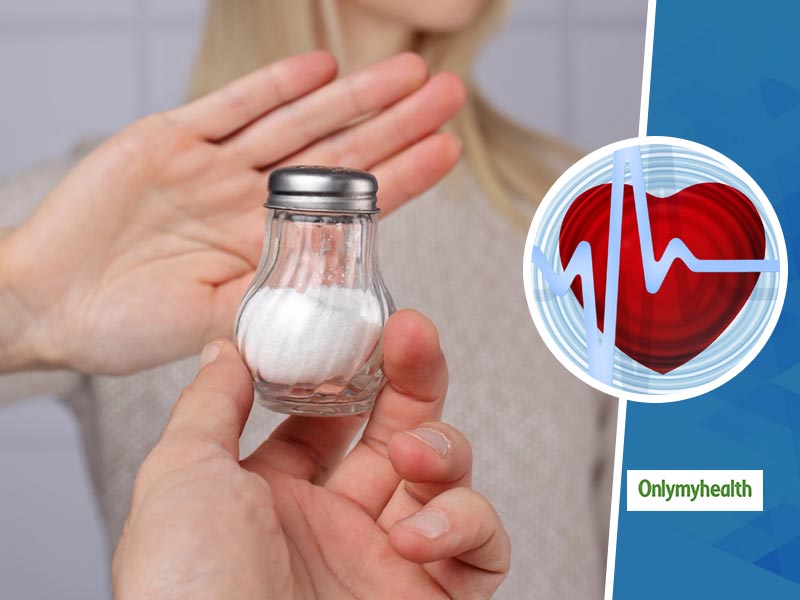
Sodium is often portrayed as a villain in health discussions due to its association with high blood pressure and cardiovascular diseases. However, what many fail to recognise are the potential dangers of low sodium levels in the body. While sodium is crucial for maintaining fluid balance, nerve function, and muscle contraction, excessively low levels can lead to a range of health complications that are often overlooked. Here are the lesser-known dangers of low sodium levels and shed light on why maintaining a balanced sodium intake is essential for overall health.
Table of Content:-
Role of Sodium in the Body
Before delving into the dangers of low sodium levels, it's crucial to understand the role sodium plays in the body. Sodium is an electrolyte that helps regulate fluid balance, blood pressure, and pH levels. It is also essential for nerve function and muscle contraction. The body tightly regulates sodium levels through mechanisms such as thirst, hormonal signalling, and kidney function. However, when sodium levels drop too low, it can disrupt these vital functions, leading to various health issues.
1. Hyponatremia: The Silent Threat
Hyponatremia is a condition characterised by abnormally low levels of sodium in the blood. While it often goes unnoticed, especially in its mild form, severe hyponatremia can be life-threatening. Symptoms may include nausea, headache, confusion, seizures, and even coma. Athletes and individuals who engage in prolonged physical activity are particularly at risk, as excessive sweating can deplete sodium levels. Moreover, certain medical conditions and medications can also increase the risk of hyponatremia.

2. Cognitive Impairment and Neurological Symptoms
Low sodium levels can impair brain function, leading to cognitive deficits and neurological symptoms. Studies have shown that hyponatremia is associated with cognitive impairment, including difficulties with attention, memory, and executive function. In severe cases, it can manifest as confusion, hallucinations, and seizures. These neurological symptoms can significantly impact daily functioning and quality of life, highlighting the importance of maintaining optimal sodium levels for cognitive health.
Also Read: Secret to Luscious Locks: Power of Hibiscus Flowers in Hair Care
3. Increased Risk of Falls and Fractures
Maintaining adequate sodium levels is crucial for maintaining muscle strength and coordination. Low sodium levels can disrupt nerve signalling and muscle contraction, increasing the risk of falls and fractures, especially in older adults. Research suggests that hyponatremia is associated with an increased risk of falls and fractures, independent of other risk factors such as osteoporosis and muscle weakness. Therefore, ensuring a balanced sodium intake is essential for preserving mobility and reducing the risk of debilitating injuries.

4. Cardiovascular Complications
While high sodium intake is often linked to cardiovascular diseases such as hypertension, excessively low sodium levels can also have adverse effects on cardiovascular health. Hyponatremia has been associated with an increased risk of heart failure, arrhythmias, and sudden cardiac death. Low sodium levels can disrupt the balance of electrolytes in the blood, affecting heart function and increasing the workload on the cardiovascular system. Therefore, maintaining optimal sodium levels is crucial for reducing the risk of cardiovascular complications.
Also Read: Expert Shares the Importance of Avoiding Ultra-Processed and Fast Foods During Pregnancy
5. Endocrine and Renal Dysfunction
Sodium plays a vital role in regulating hormone secretion and kidney function. Low sodium levels can disrupt the balance of hormones such as aldosterone and antidiuretic hormone (ADH), leading to endocrine dysfunction and impaired renal function. This can result in electrolyte imbalances, fluid retention, and kidney damage over time. Furthermore, chronic hyponatremia has been associated with an increased risk of kidney disease and mortality. Therefore, ensuring a balanced sodium intake is essential for preserving endocrine and renal health.
Bottomline
While sodium is often vilified for its role in promoting hypertension and cardiovascular diseases, it's essential to recognise the dangers of low sodium levels in the body. From cognitive impairment and neurological symptoms to increased risks of falls, fractures, and cardiovascular complications, inadequate sodium intake can have far-reaching consequences for health and well-being. Therefore, it's crucial to maintain a balanced sodium intake and be mindful of the signs and symptoms of hyponatremia. By prioritising sodium balance, we can safeguard our health and reduce the risk of associated complications in the long run.
Also watch this video
How we keep this article up to date:
We work with experts and keep a close eye on the latest in health and wellness. Whenever there is a new research or helpful information, we update our articles with accurate and useful advice.
Current Version